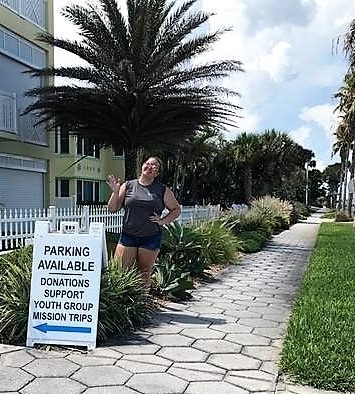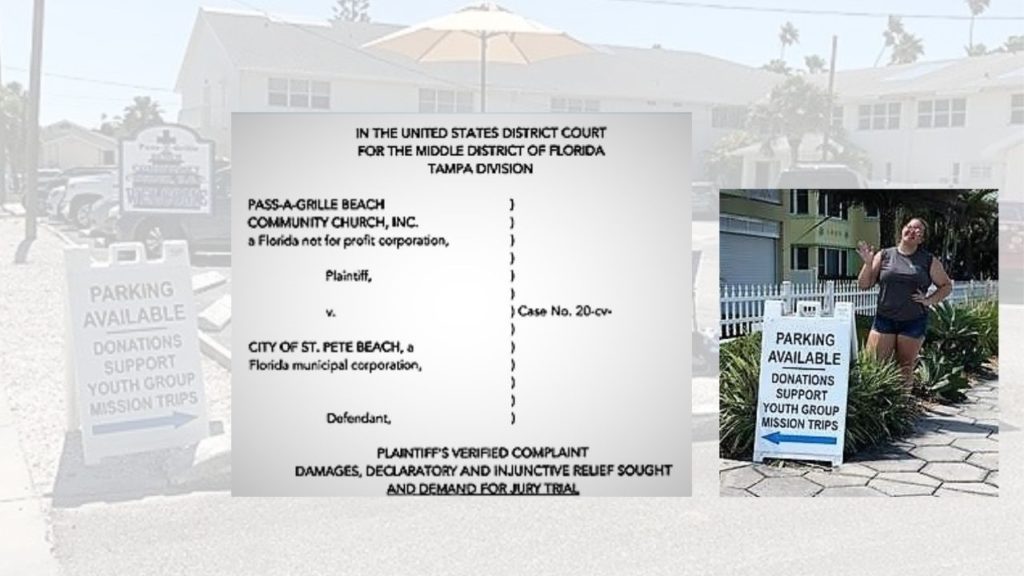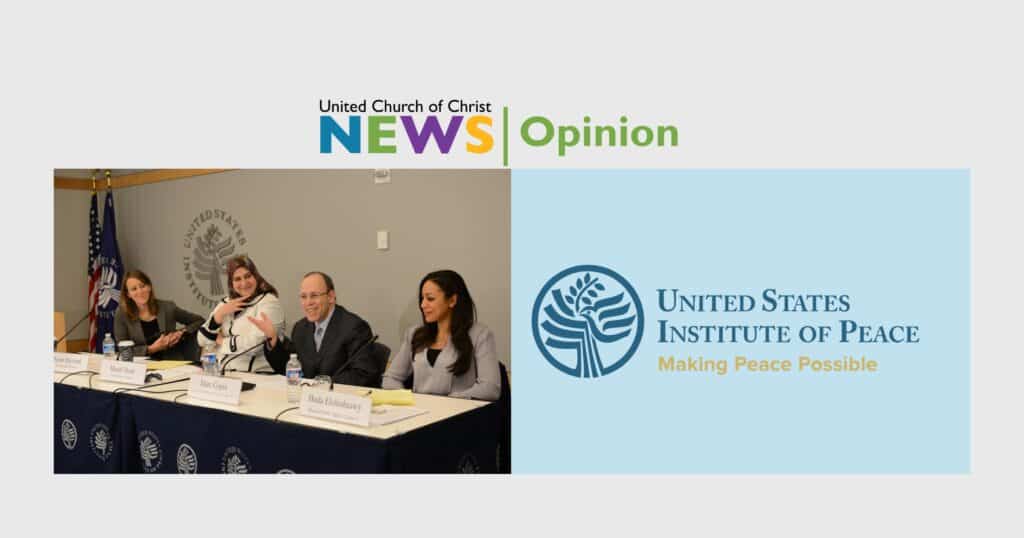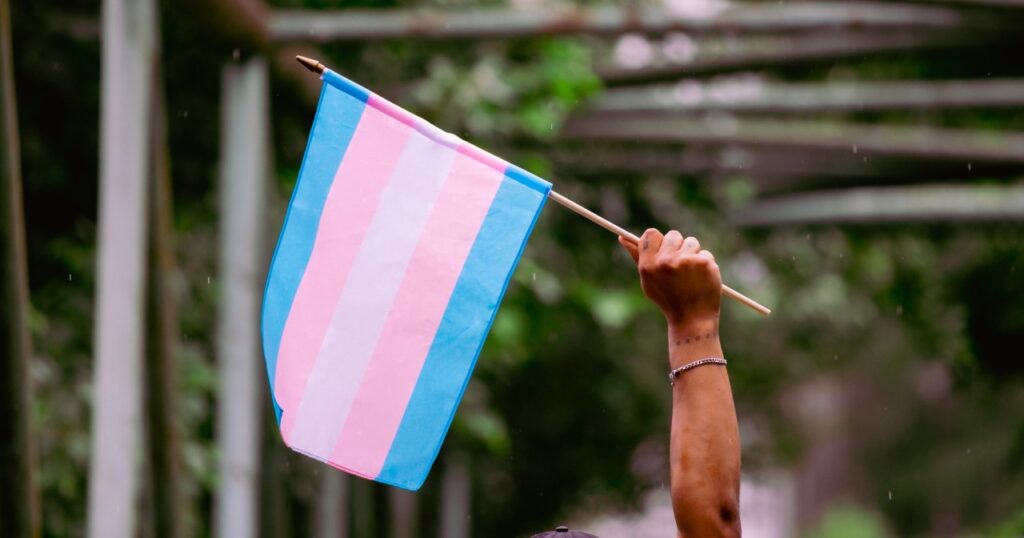Court backs Florida church’s freedom to welcome beachgoers — for now
A Florida church has won an initial federal court battle over its parking lot.

A judge ordered Jan. 27 that Pass-A-Grille Beach Community Church can still offer public parking to people who want to use a nearby beach. The church can still accept donations from them, too.
That’s just for now. A local government still wants to stop the church from using its parking lot in that way. A jury trial is set for January 2022.
Nonetheless, “this is a great win for the church,” said its lawyer, Dan Dalton. He said the court order “validates our legal position” that the church has a right “to use its parking lot in accordance with its religious mission to show biblically based hospitality.”
Why it’s in court
The United Church of Christ congregation in St. Pete Beach, Fla., has offered public parking for 60 years. It’s free. And it’s just blocks from a public beach. People can donate if they want to, using a specially marked box.
The donations support Pass-A-Grille’s youth work-camp mission trips. Sometimes church teens are there. They welcome guests and hand out brochures about the trips. They’ll even pray with people if asked.
Since 2016, the St. Pete Beach city government — prompted by unhappy neighbors — has twice tried to stop it all. Since 2020, the city has said it will fine the church up to $500 each time it allows someone to park in its lot who is not there exclusively for “legitimate church purposes.” In August, the church asked a federal court to intervene and allow the church to continue unhindered.
The central point is “the sincerity of the church’s religious beliefs concerning its use of its parking lot.”
U.S. District Judge Tom Barber
Church likely to prevail
On Jan. 27, a federal judge in Tampa did just that. Based on arguments made by both sides in November, Judge Tom Barber granted the church a preliminary injunction.
Barber gave his analysis in an 18-page order in U.S. District Court for the Middle District of Florida. He said the church “presented a substantial likelihood of prevailing on the merits” of its case for religious freedom. The church cited a 2000 law, the Religious Land Use and Institutionalized Persons Act. It shields houses of worship from discrimination in zoning.
The city and the church “strongly disagree on one central and dispositive point: the sincerity of the church’s religious beliefs concerning its use of its parking lot,” the judge wrote.
Is the church ‘sincere’?
The question, Barber said, “is whether the church is, in essence, seeking to perpetrate a fraud on the court – whether it actually holds the beliefs it claims to hold regarding its use of its parking lot.”
The church, he said, “has explained the religious basis for its position, including citations to the Bible.” He noted that its senior minister, the Rev. Keith Haemmelmann, had testified that “permitting open and free parking to the public on its lot is guided by two of the church’s core values — stewardship and hospitality.” He also quoted Youth Minister Jeanne Haemmelmann as saying the parking program attracts people to “learn about, join in, and support the church’s ministries.”
The city, the judge said, argues the dispute “has little to do with religion” and that the church’s claim of “religious exercise appears manufactured to avoid compliance with local regulations.”
In disputing the church’s sincerity, “the city places great weight on its argument that the church has not always offered free parking but has, from time to time, charged for parking or accepted voluntary donations,” the judge said. “According to the city, ‘[the church’s] history of restricting access to its property for convenience or profit undermines any claim that its faith truly compels offering public parking.'”
“The church is certainly not attempting to perpetrate a fraud upon the court.”
U.S. District Judge Tom Barber
Not a fraud, judge says
Indeed, the church at one time — in a past decade — did charge for parking. However, Barber concluded, “This does not mean that the church’s presently stated religious beliefs are not sincere.”
“The church is certainly not attempting to perpetrate a fraud upon the court when it states it desires to use its parking facilities to further its mission by attracting new people,” he wrote.
“I’m confident the church is right on the merits of its RLUIPA claim,” said Noel Sterrett, another lawyer with Dalton & Tomich, the firm representing the church. The court, Sterrett said, noted that “it is difficult to imagine how the city’s current policy of limiting the church’s use of its parking lot for ‘legitimate church purpose’ could ever be workable in a practical sense.”
Teens out again soon
The injunction means the church can now go back to offering parking as hospitality.
Jeanne Haemmelmann said the church’s teens are making COVID-safe plans for a work trip to the Sioux Rosebud American Indian reservation in South Dakota in June. And they’re looking forward to telling guests about it in the parking lot. “We will be out there as soon as the weather warms up,” she said, “so hopefully Feb. 6 and 7.”
Related News
Opinion: UCC pastor and former Institute of Peace Staffer calls for action in defense of peace
Editor’s Note: The United States Institute of Peace (USIP), an independent institute founded...
Read MorePension Boards appoints David A. Klassen as its President, CEO
The Pension Boards, an affiliated ministry of the United Church of Christ recently announced its...
Read MoreTrans Day of Visibility message from UCC’s Thompson: ‘We will continue to show up and speak up’
On March 31, pale pink and baby blue striped flags fluttered in the wind in front of homes,...
Read More



